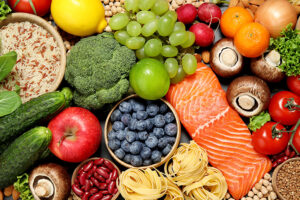
Proper nutrition is key to keeping your body healthy and happy, especially as you grow older. As you age, your body undergoes changes related to metabolism, bone density, and other factors. Additionally, many people become less active as they age, which can alter nutritional needs further.
Understanding how to address these changes and develop the appropriate diet is crucial to enjoying your golden years. Here are a few methods you can employ to help ensure you’re getting sufficient nutrition.
A well-balanced diet should contain five to seven servings of fruit and vegetables on a daily basis. Your daily intake should include wholesome, colorful foods like orange bell peppers, green spinach, red apples, and yellow bananas. Eating more fruit and vegetables can ensure you’re getting sufficient nutrition without negatively impacting your weight, as increasing weight can raise your risk of illness.
In addition to a healthy diet, many older adults must also take supplements to satisfy their nutritional needs. However, you should consult your doctor first to ensure a supplement doesn’t potentially interact with any prescribed medications you’re currently taking.
You can also use the free DrOwl app to share a helpful Patient Snapshot with your doctor, which will include medical conditions you have, medications and supplements you are currently taking, and allergies you suffer from. DrOwl also allows you to share this information with caregivers and loved ones, who can then serve as your trusted advocates when it comes to healthcare.
Along with diet, daily consumption of water is also crucial to your overall well-being. You may also not be able to recognize thirst as effectively as you get older, which highlights the importance of being proactive about water consumption. Drinking plenty of water, while also eating water-rich foods, helps stave off dehydration and the ill-effects associated with it. Additionally, your water needs will increase the more active you become, especially if you’re exercising on extremely hot days.
Older adults, particularly women, have a greater risk of osteoporosis. This condition occurs when your body loses bone tissue faster than it can be regenerated, which then increases your risk of fractures. Calcium intake is crucial in this case, and doctors recommend that women over 50 and men over 70 get at least 1,200 milligrams per day. You can boost your calcium intake by eating foods like beans, nuts, leafy greens, cheeses, and more. Vitamin D intake is also important, as it helps your body effectively absorb calcium.
Maintaining optimum health and wellness is important for people of all ages, but it’s especially crucial for older adults. By taking the above actions, you can help lower your risk of illness while leading a rich, fulfilling life.